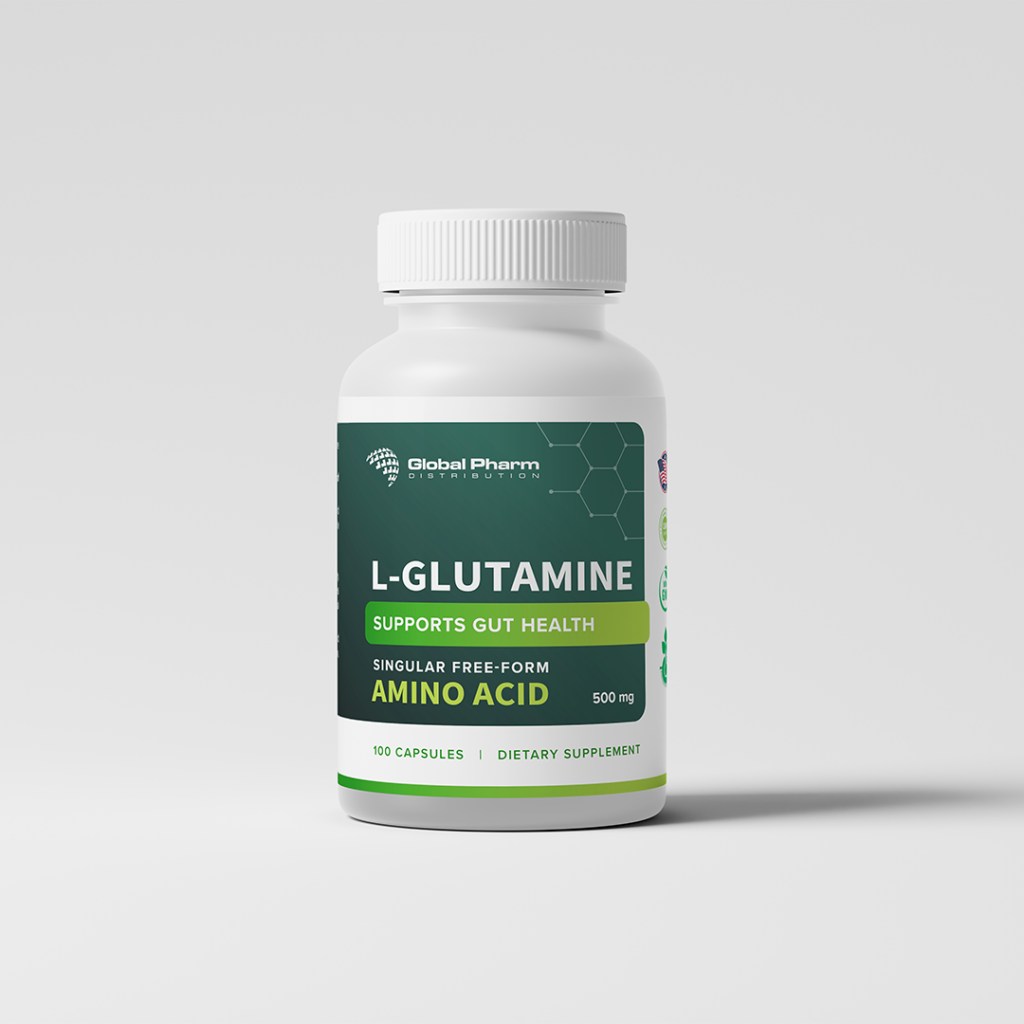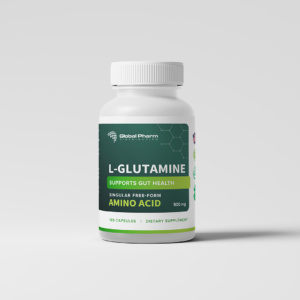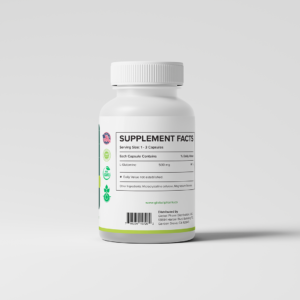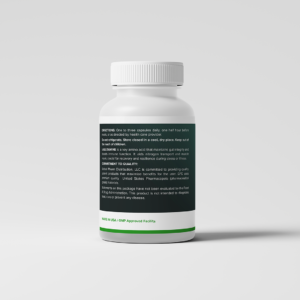Description
NDC: 53335-067-14 (capsule), 53335-068-29 (powder)
Weight: 4 Oz
L-Glutamine is a non-essential amino acid that becomes conditionally essential during stress, injury, or illness, playing a pivotal role in multiple physiological processes. It increases glutamine levels in muscle tissue, promoting an anabolic effect beneficial for bodybuilders and athletes, and prevents muscle wasting in post-surgical patients or those with trauma and catabolic conditions. L-Glutamine supports immune function, enhances mental alertness and neurological health, and aids glucogenic function to balance low blood sugar levels. Additionally, it influences the appetite center to reduce cravings for sweets and alcohol, and promotes proper intestinal function by maintaining gut barrier integrity. Research underscores its protective role against oxidative stress and tissue damage (e.g., Calder 1994).
L-Glutamine is particularly valuable for individuals seeking to support muscle recovery, boost immunity, or improve digestive health under metabolic stress. Manufactured using premium pharmaceutical-grade materials in a GMP-approved facility in the USA, L-Glutamine is free of fillers, binders, or coloring agents, with no known side effects when used as directed.
Directions: Take 1-3 capsules daily or as advised by your healthcare provider. Pair with vitamins and minerals; GPD’s MVM (Multivitamin) is recommended. Powder equivalent: 1/4 level teaspoon per capsule.
Key Benefits
- Supports Muscle Health: Promotes anabolic effects and prevents wasting.
- Boosts Immune Function: Enhances immune system activity.
- Improves Gut Integrity: Supports intestinal barrier function.
References
- Calder PC. (1994). “Glutamine and the immune system.” Amino Acids, NIH.
- Newsholme EA, et al. (1999). “Glutamine metabolism and immune function.” Nutrition, NIH.
- Lacey JM, Wilmore DW. (1990). “Is glutamine a conditionally essential amino acid?” Nutrition Reviews, NIH.
- Souba WW. (1991). “Glutamine: A key substrate for the splanchnic bed.” Annual Review of Nutrition, NIH.
These statements have not been evaluated by the Food and Drug Administration. This product is not intended to diagnose, treat, cure, or prevent any disease. Consult a doctor or medical professional before use, especially if you have underlying health conditions or are taking other medications.
Additional Information The following points provide insight into L-Glutamine’s plasma levels and their association with various health conditions, reflecting its role in metabolism:
- Normal Range: 400-700 micromol/L (approximate clinical range).
- Conditions Associated with Low Levels:
- Critical illness or trauma (increased demand during catabolism)
- Gastrointestinal disorders (e.g., Crohn’s disease, malabsorption)
- Chemotherapy-induced mucositis (depleted gut glutamine)
- Conditions Associated with High Levels:
- Excessive supplementation (from overdosage or dietary excess)
- Liver dysfunction (impaired glutamine metabolism)
- Certain neurological conditions (e.g., hepatic encephalopathy, due to ammonia regulation)
Notes: L-Glutamine is a conditionally essential amino acid critical for muscle anabolism, immune support, and intestinal health. It serves as a precursor for glutathione, aiding antioxidant defense, and regulates blood sugar and appetite. Low levels may indicate metabolic stress or gut damage, while high levels can result from supplementation or liver impairment. These associations are correlative and require further research for causal confirmation. For more technical information, please click here. Consult a doctor or medical professional before use, especially if you have underlying health conditions or are taking other medications.
 Global Pharm Distribution, LLC
Global Pharm Distribution, LLC




